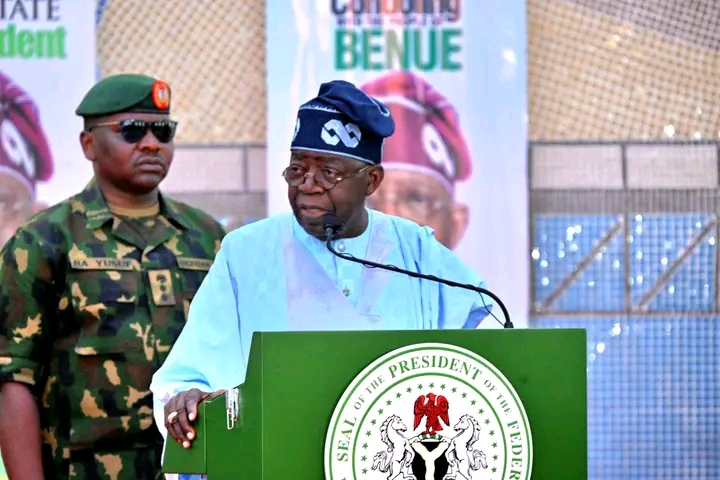News Analysis – By Abdul Lauya
In what appears to be a watershed moment for Nigeria’s tertiary education system, the administration of President Bola Ahmed Tinubu has made good on a longstanding promise: payment of the Earned Academic Allowances (EAA) owed to university lecturers across the country. The payments, confirmed by several academics including Professor Yemi Oke of the University of Lagos, bring an end to nearly two decades of agitation over unpaid entitlements that had dogged successive governments.
Yet, while the development has been widely welcomed across academic circles, analysts caution that it only scratches the surface of deeper structural issues plaguing Nigerian universities, particularly the stagnation in lecturers’ remuneration and the broader conditions of service.
Historic Debt, Finally Cleared
On June 24, 2025, many university staff members received payment alerts for their long-awaited EAA. For Prof. Oke, a Senior Advocate of Nigeria (SAN) and Professor of Law, the event marked not just a financial transaction, but a restoration of dignity long denied.
“Inherited debt is not your debt,” Oke wrote in a widely circulated public letter, praising Tinubu’s courage to pay what others left behind. “But President Tinubu made a promise, and he kept it.”
The EAA, a financial entitlement for additional academic work outside regular teaching hours, has been a source of industrial unrest since the early 2000s. While various administrations pledged to resolve the matter, Tinubu’s government has now done so, at least in part, through a bulk settlement process, signalling a shift in political will.
Student Loan Scheme Gains Momentum
Another cornerstone of Tinubu’s education policy is the rollout of the Nigerian Education Loan Fund (NELFUND), designed to ease financial burdens on students. As of April 2025, over ₦54 billion had reportedly been disbursed to nearly 300,000 students across 303 institutions.
Despite an earlier false claim by government sources that ₦104 billion had already been disbursed, subsequent fact-checks clarified that this figure referred to applied loans, not actual disbursements. Still, the scale and reach of the loan scheme is unprecedented in Nigeria’s history.
Parents and students alike have lauded the initiative, with many calling it a “relief mechanism” in the face of rising tuition and living costs. However, implementation challenges remain, with some universities allegedly withholding disbursed funds, prompting ongoing investigations by the National Orientation Agency (NOA) and the Independent Corrupt Practices Commission (ICPC).
Remuneration: The Elephant in the Room
Despite these achievements, the core issue of academic remuneration remains untouched. University lecturers in Nigeria continue to earn some of the lowest wages in the professional class, with some full professors reportedly earning less than $500 monthly at the official exchange rate.
“There hasn’t been a salary review for academic staff since 2009,” Oke lamented, calling the situation “heinous” and “unsustainable.” His sentiments echo a broader concern within the academic community that the EAA payment, though commendable, does not substitute for a proper salary structure or career incentives.
The situation raises uncomfortable questions: How long can a nation underpay its intellectual capital without suffering the consequences in quality, morale, and brain drain?
Rebuilding the Ivory Towers
The 2025 federal budget earmarked ₦940 billion for the Tertiary Education Trust Fund (TETFund), representing the largest single-year allocation to academic infrastructure to date. The fund is expected to finance the rehabilitation of lecture halls, laboratories, and hostels across federal and state institutions.
But infrastructure alone cannot sustain a university system. Experts argue that Nigeria must also invest in human capital, by offering competitive wages, modern research funding, and meaningful career pathways.
“Imagine a poorly trained medical student, or a pilot, or an engineer,” Oke warned, painting a grim picture of what underfunded education could mean for national safety and development. “University lecturers are the invisible subsidies holding this nation together.”
Politics or Policy?
As the 2027 general elections approach, some observers see Tinubu’s moves as politically calculated. Yet, even critics concede that resolving inherited academic debts and launching a national student loan scheme are not minor accomplishments.
“If this is politics,” a lecturer quipped anonymously, “then it’s the kind we’ve waited for.”
Still, the academic community remains watchful. Many are urging the president to capitalize on his momentum and initiate a full-scale salary review, arguably the most impactful reform he could deliver to Nigerian universities.
A Start, Not the Finish
President Bola Tinubu has taken commendable steps in addressing two of the most pressing financial concerns in Nigerian higher education: the long-neglected Earned Academic Allowances and the burden of tuition for students. These interventions are not just symbolic, they offer tangible relief to educators and learners alike.
However, these strides must be viewed as a beginning rather than a conclusion. Without a comprehensive reform of remuneration structures, Nigeria risks undoing the gains of the past year. To secure the future of its universities, the country must go beyond clearing debts and begin valuing its educators not just in words, but in wages.
The “giant” called Nigeria, as Oke described it, may be rising, but it still needs strong shoulders to stay upright. And those shoulders belong, in part, to its underpaid and overburdened university professors.
For advert placement and inquiries, publication of press releases, and news coverages, please call: Phone: 08052898434 Email: editor@eyereporters.com, click here to view the advert rates.



